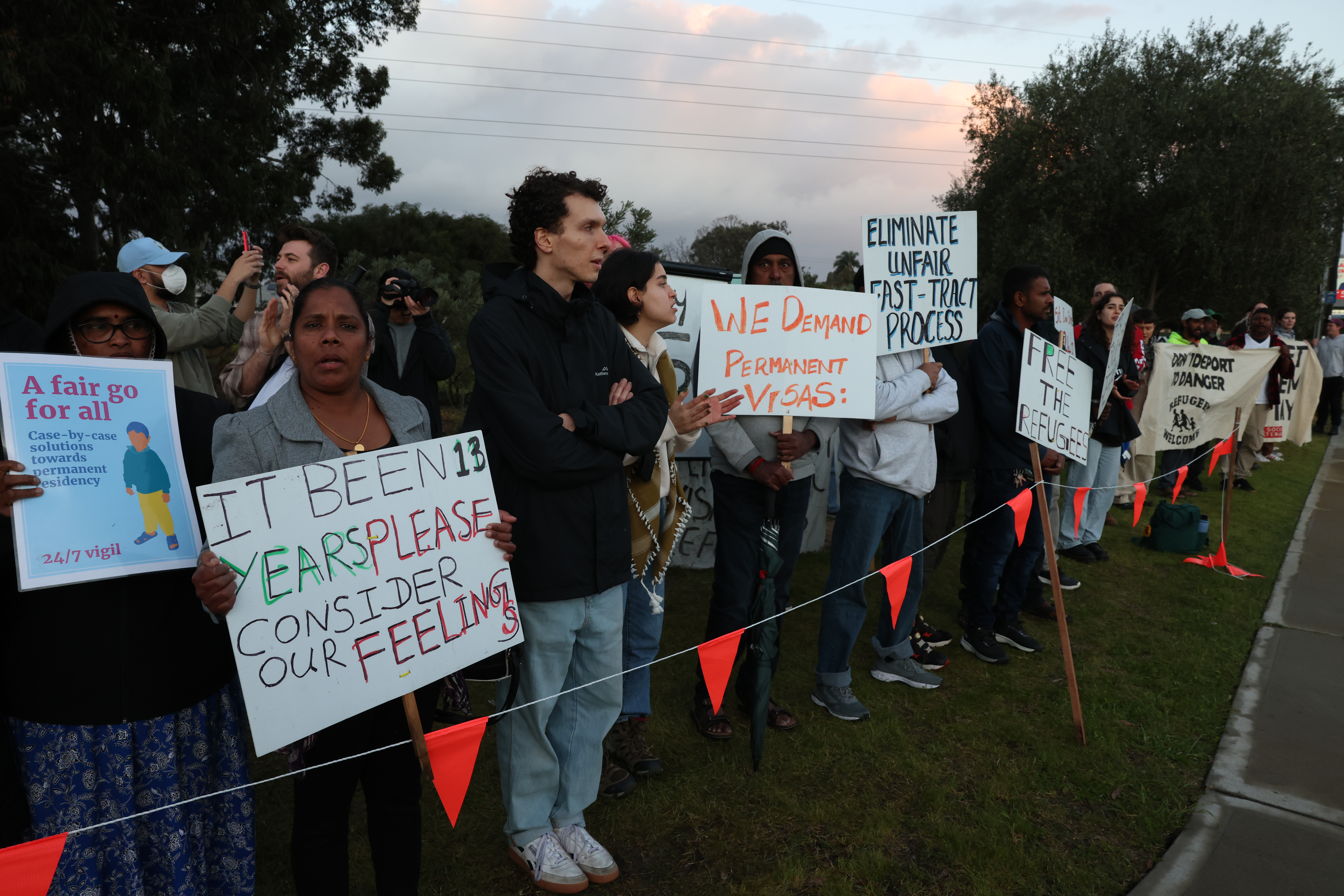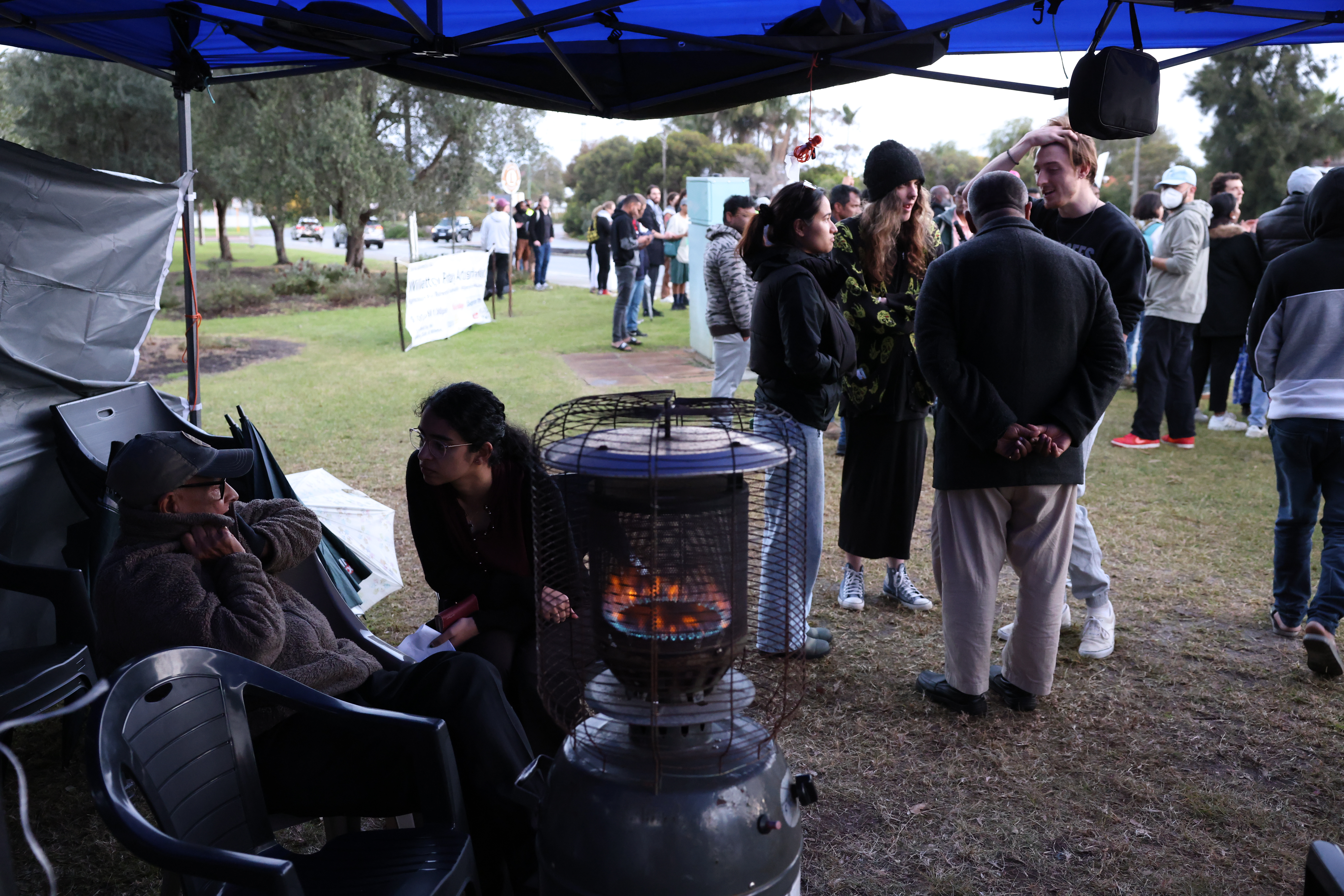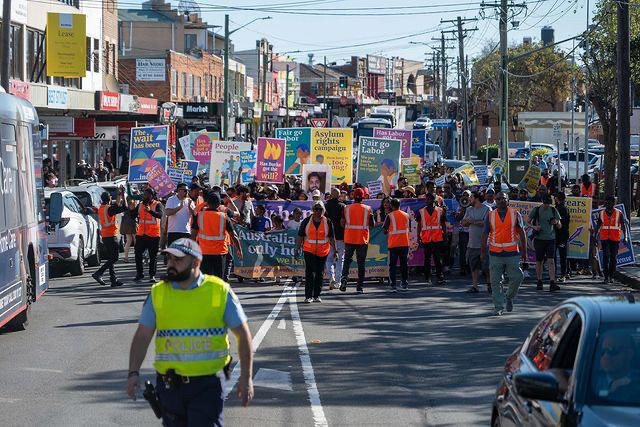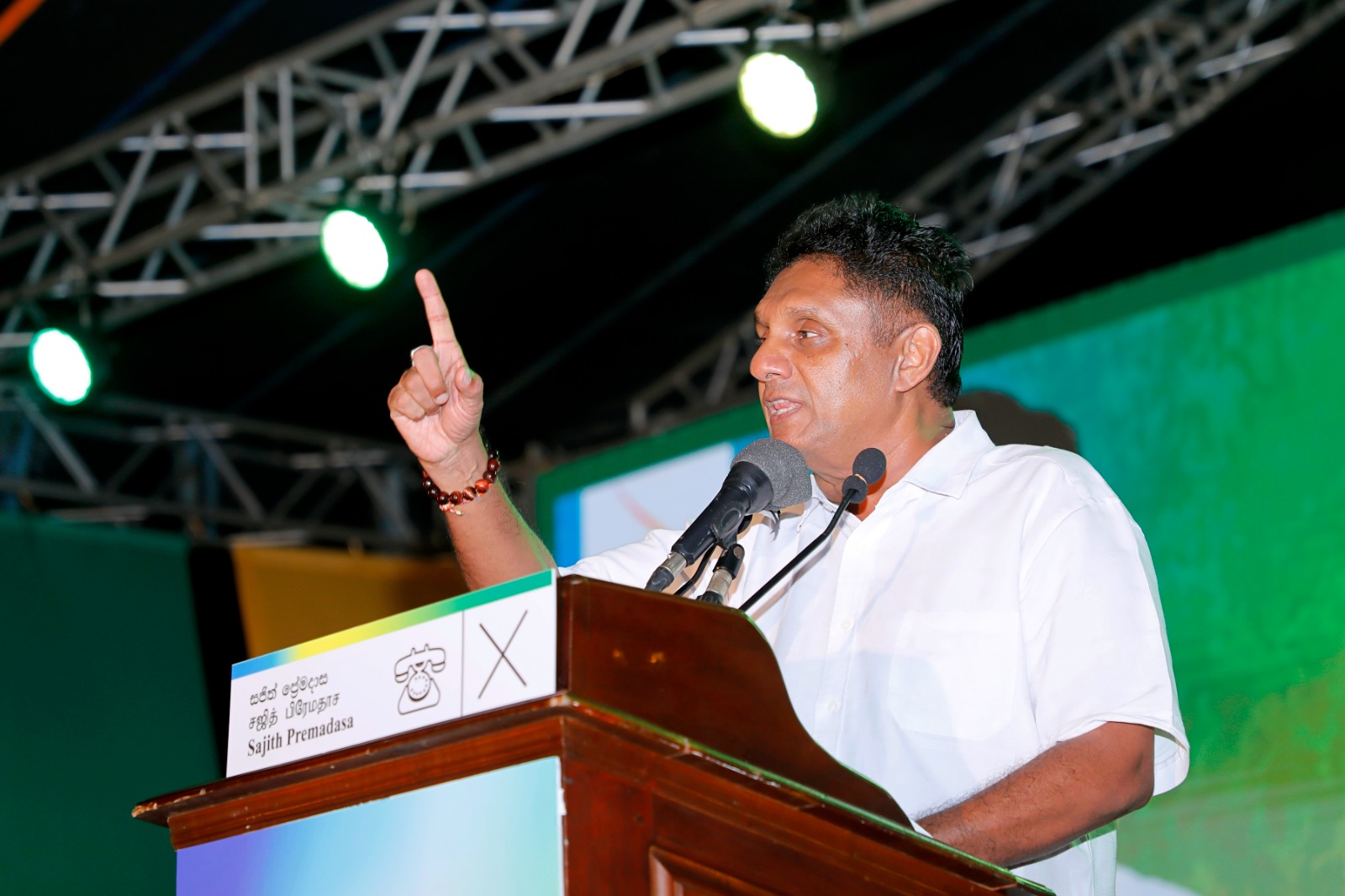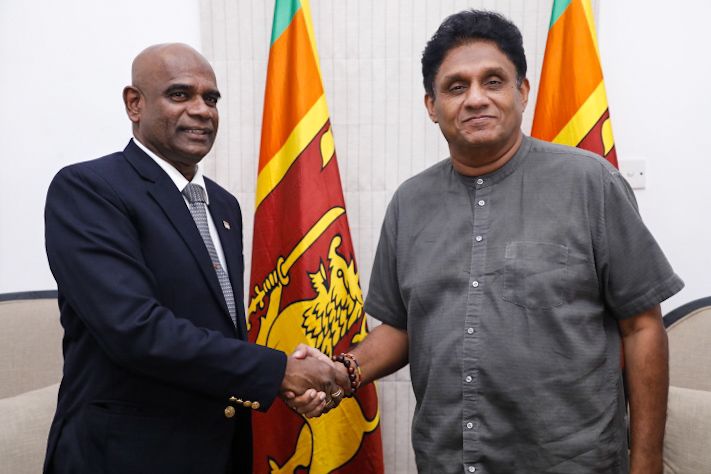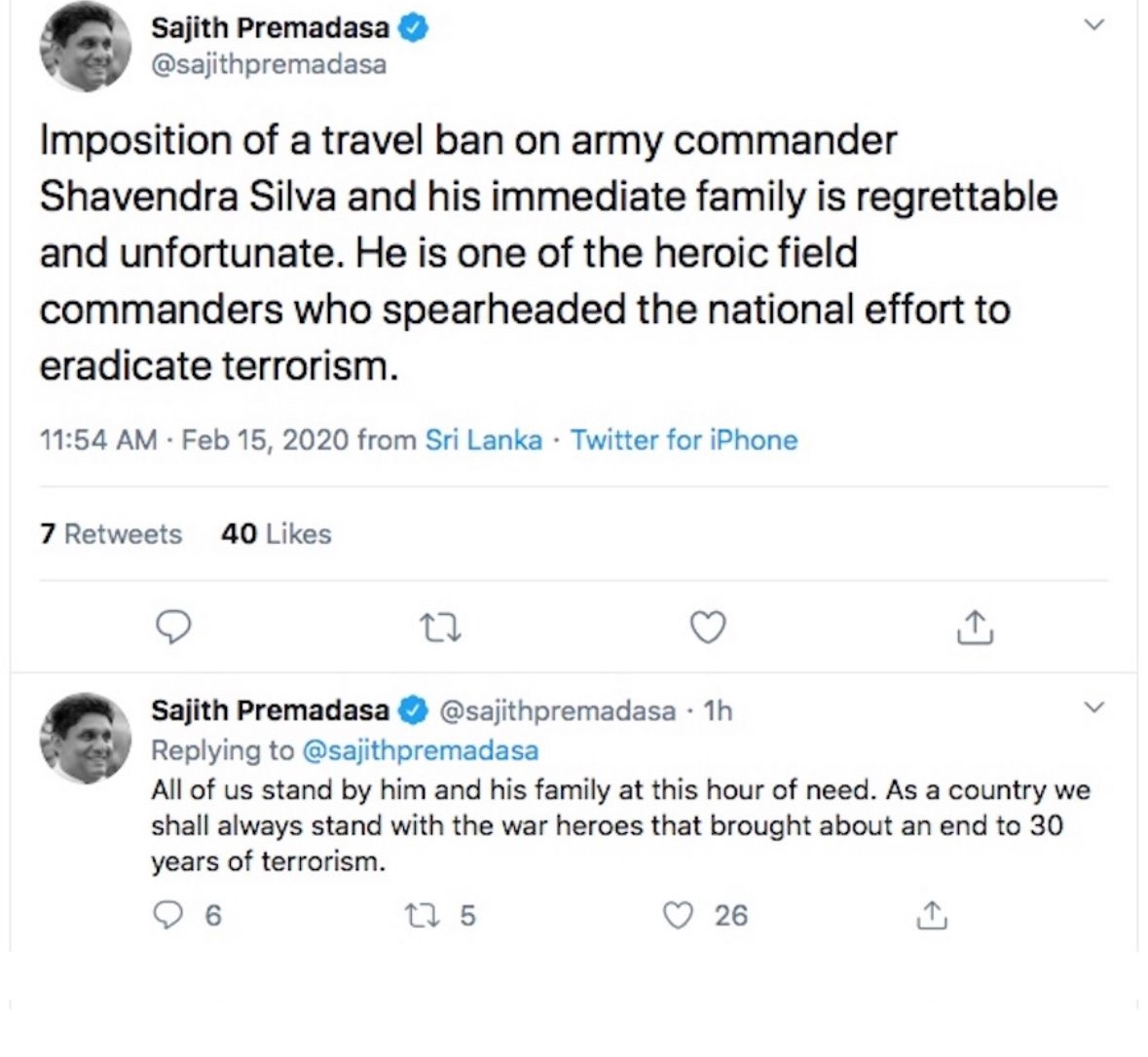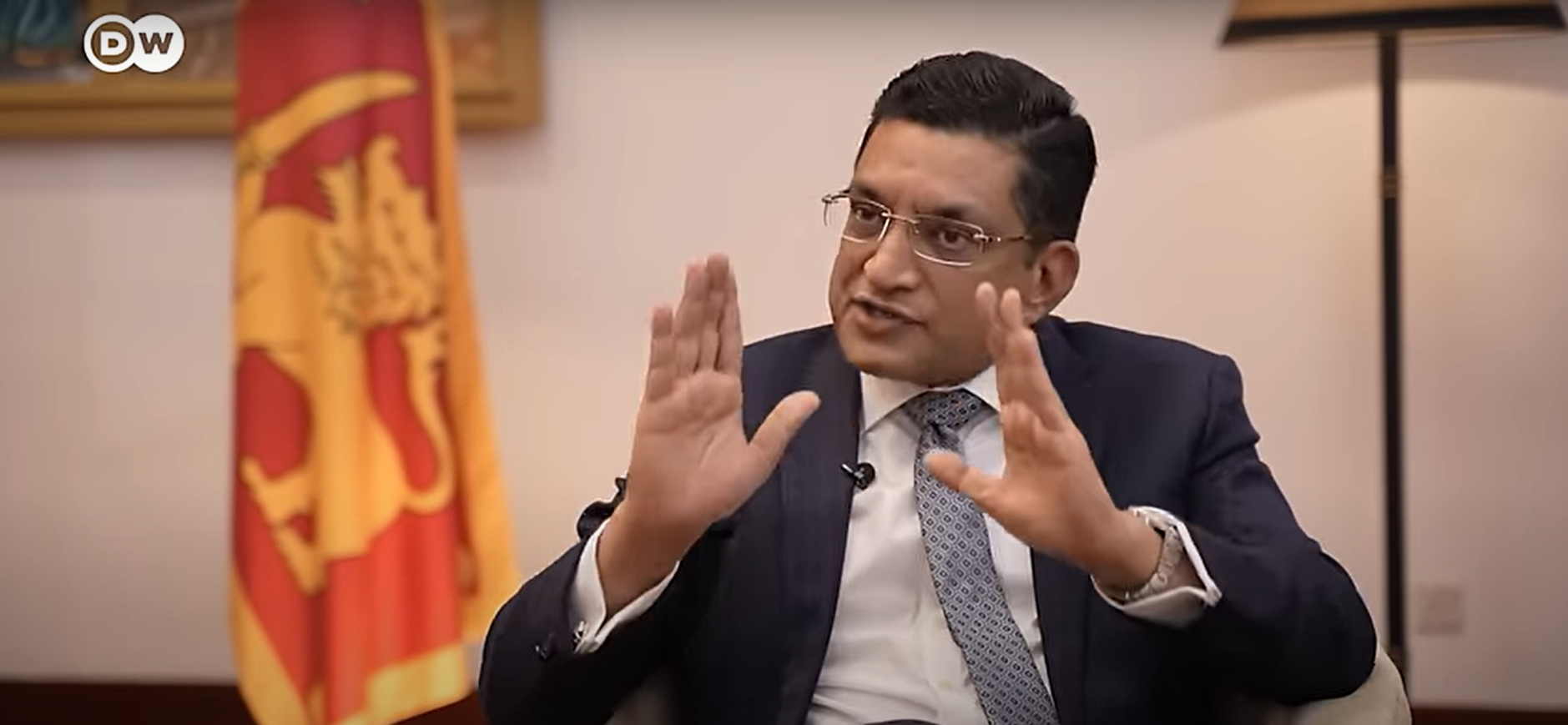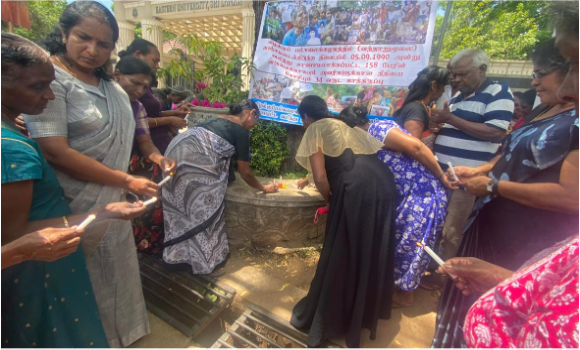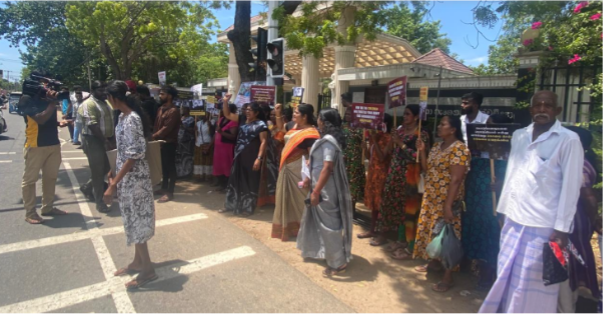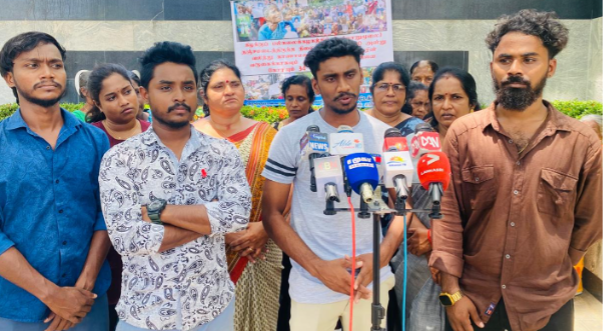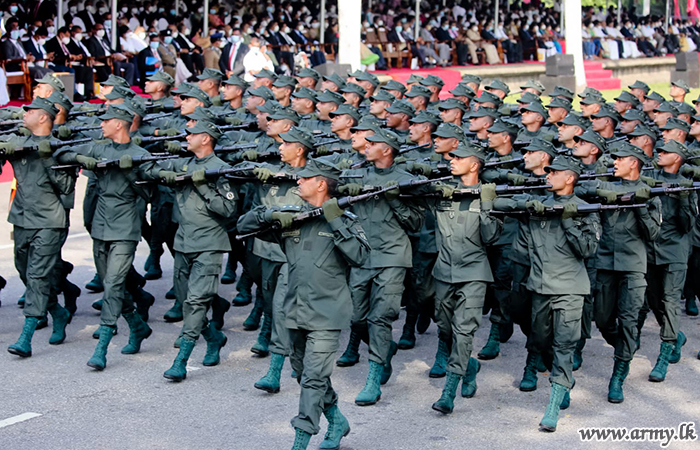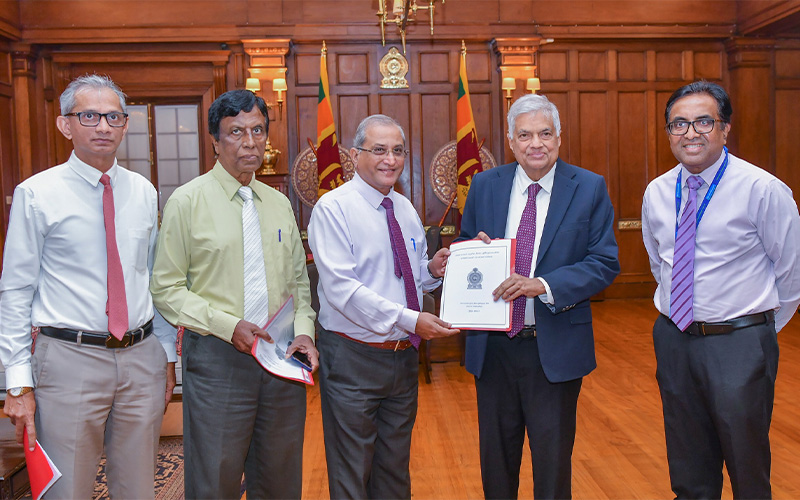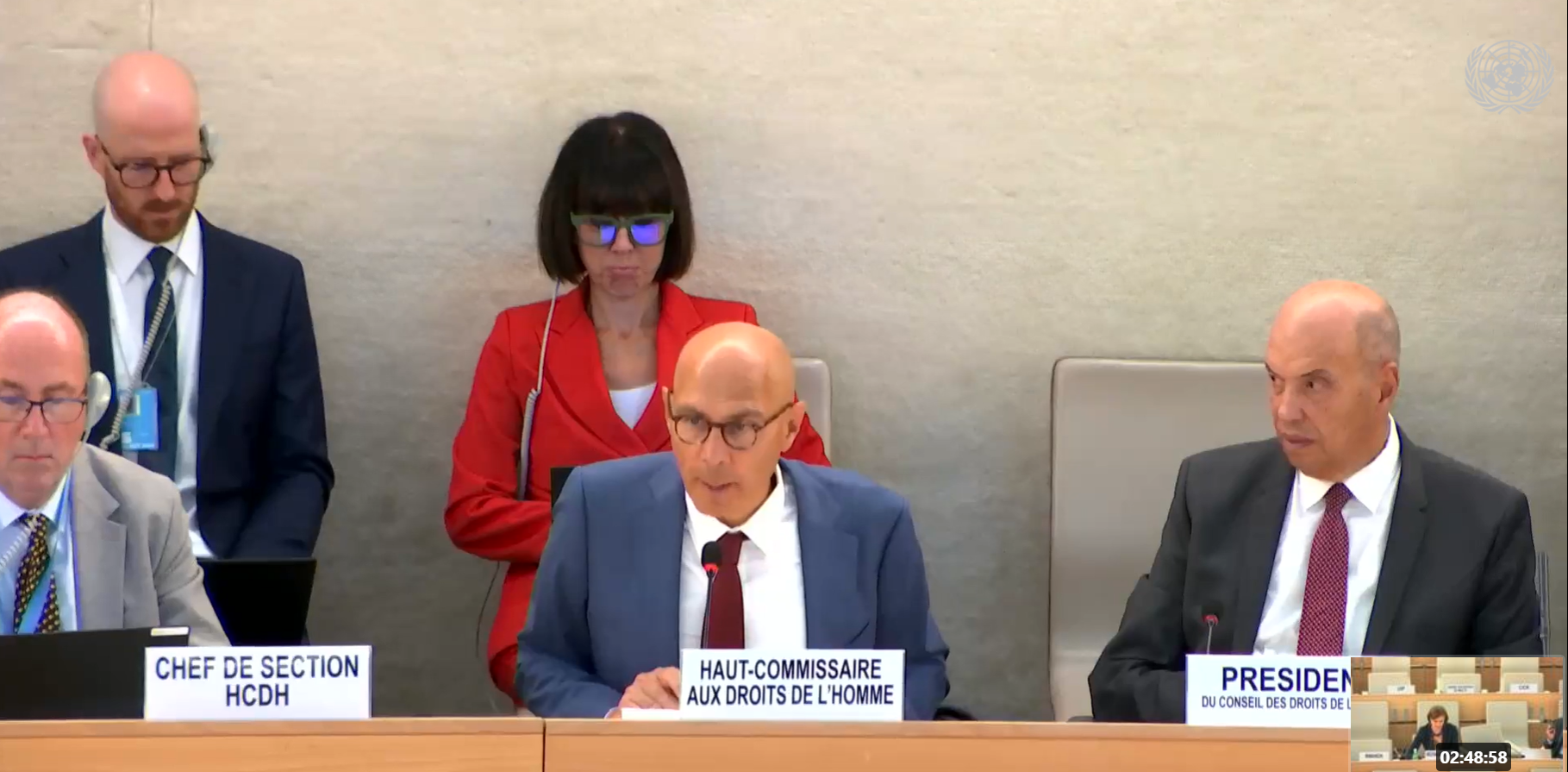
UN High Commissioner Volker Türk urged Sri Lanka to address the "root causes of the conflict" to advance accountability and reconciliation whilst also calling on member states to take action through their own domestic systems and through the international fora.
UN High Commissioner Volker Türk urged Sri Lanka to address the "root causes of the conflict" to advance accountability and reconciliation whilst also calling on member states to take action through their own domestic systems and through the international fora.
During the interactive dialogue at the 57th session of the Human Rights Council, the human rights chief brought the Council's attention to his most recent report which details the sexual abuse and intimidation of Tamil activists by Sri Lanka’s security forces; continued crackdowns on memorial activities across the North-East; and failure to advance accountability for human rights abuses committed.
Türk said that in Sri Lanka, "a prevailing sense of impunity impedes meaningful progress and encourages continued violations and more corruption."
"The absence of accountability for past and present violations is a fundamental problem, illustrated by the lack of meaningful progress in emblematic cases," he added.
Responding to the UN High Commissioner's report, Sri Lanka's ambassador Himalee Subhashini Arunatilaka restated the country's opposition to Resolution 51/1 and claimed that "the resolution was adopted without Sri Lanka's consent by a divided vote within this Council."
Resolution 51/1, passed at the UNHRC in October 2022, extended and reinforced "the capacity of the Office of the High Commissioner to collect, consolidate, analyse and preserve” evidence that may be used in future war crimes trials.
Arunatilaka went on to add that the evidence gathering mechanism was "unproductive and unwarranted".
"The selective and disproportionate focus on handpicked developing countries while ignoring critical situations elsewhere is unacceptable. We urge the Council to avoid politicisation and double standards, and to focus on dire humanitarian situations that require urgent action to maintain its crediibility."
The United Kingdom said it shared the High Commissioner's concerns over the human rights trends in Sri Lanka. The UK noted that there has been little accountability for human rights abuses that took place during the armed conflict and the whereabouts of Tamils who were forcibly disappeared "remain unknown".
The UK added that a "comprehensive transitional justice process that carries the support of affected communities is more pressing than ever" whilst also calling for independent investigations into the violations that highlighted in the High Commissioner's report.
Addressing the Council, Canada stressed the importance of “inclusive transitional justice” in Sri Lanka that focuses on accountability, “including for enforced disappearances and that ends impunity by security forces for human rights violations and land seizures.”
They urged Sri Lanka to “take tangible steps” towards meaningful accountability and reconciliation that “addresses concerns of all victims and affected communities.”
Canada also expressed concern over new and proposed legislation and called on Sri Lanka to ensure all legislation complies with its international human rights obligations.
The European Union noted that Sri Lanka has established a Commission for Truth, Unity and Reconciliation but are "looking forward to getting a clear picture of its work".
They added that they "remain concerned" over the lack of progress on accountability and truth and called on the authorities to "preserve civic space".
The United States strongly urged the Sri Lankan government to continue the government return of lands, an end to land grabs and “enhanced transparency” concerning land deals.
The US also said it was deeply concerned by the reports of ongoing torture outlined in the High Commissioner’s report and called on Sri Lanka to hold those responsible to account.
“Longstanding impunity for human rights abuses remains an obstacle to reconciliation. Transitional justice institutions and reconciliation initiatives that are victim-centered, independent, inclusive, impartial and transparent restore trust in institutions and minimise the risk of renewed conflict,” they stressed.
Speaking on behalf of the Nordic-Baltic countries, Finland called on the Sri Lankan government to take "immediate and credible steps to strengthen accountability and reconciliation efforts, address all violations committed during and after the civil war and put an end to impunity."
Finland went on to add that the fate of those forcibly disappeared needs to be addressed with urgency whilst "acts of commemoration need protection".
India told the Council that it is a "close friend" of Sri Lanka and stated that the "meaningful devolution of powers to Provincial Councils, holding of Provincial Council elections and full and effective implementation of the 13th Amendment" will facilitate reconciliation in Sri Lanka.
Liechtenstein stated that "long overdue reforms" to advance human rights and reconciliation have not been implemented.
"True reconciliation cannot be achieved with impunity. The lack of accountability for past and present human rights violations at all levels needs to be urgently and credibly addressed and the suffering of victims needs to be recognised," they added.
In their statement, Belgium said that it "regrets" the Online Safety Bill which expands restrictions on the freedoms of expression by "granting broad powers to the security forces". They urged the Sri Lankan government to allow journalists and civil society activists to "conduct their work without fear of intimidation, surveillance or reprisals, including those working on enforced disappearances, land seizures and environmental issues."
They went on to add that the intimidation of the families of the disappeared has a "devastating impact" on those already suffering from human rights violations.
Montenegro told the Council that they are concerned to hear reports of restrictions on the freedom of expression and the shrinking of civic space in Sri Lanka. They urged Sri Lanka to "fully cooperate" with the High Commissioner's office and to re-engage with the Human Rights Council in addressing the concerns outlined in the High Commissioner's report.
Australia noted Sri Lanka’s bill for a Commission for Truth, Unity and Reconciliation but emphasised the “importance of appropriate resourcing and implementation, and earning the trust and meeting the expectations of affected communities.”
Many member states commended Sri Lanka for the "progress" it had made in advancing reconciliation and said the Council should remain objective and avoid politicising the island's human rights situation.
China told the Council that it opposes the politicisation of human rights issues and added that the evidence gathering mechanism mandated in Resolution 51/1 ignores the progress made by Sri Lanka.
Iran questioned the transparency of the evidence gathering mechanism whilst Cuba said it voted against the resolution as it was "biased". In their address, Syria stated that the resolutions were adopted without the consensus and consultation of Sri Lanka and added that such resolutions "go beyond the mandate given to the Council."
Lebanon expressed support for Sri Lanka's domestic reconciliation processes and stated they appreciate the work of the Office of Missing Persons and the amendments made by Sri Lanka to the Prevention of Terrorism Act.
In his concluding remarks, Türk said that dealing with the past requires a “comprehensive approach”. Türk added that while Sri Lanka has taken a number of steps including releasing lands held by the military, there is a “missing link”. He explained that the missing link is accountability.
“The primary responsibility for accountability in all its components – be it truth , justice, remedy, non recurrence – lies with the state's authorities,” Türk added.
He added that there is a “clear accountability gap” which means that “a comprehensive investigation and prosecution of past human rights violations have not occurred to a satisfactory level.”
The human rights chief called on member states to look at additional and complementary measures to advance accountability on a domestic and international level. Türk stated that his office believes the UNHRC needs to continue its focus on Sri Lanka and extend support to his office for the continuation of this important work.
The High Commissioner stressed that there needs to be “sustained efforts” for accountability and long term reforms to prevent human rights violations in Sri Lanka.
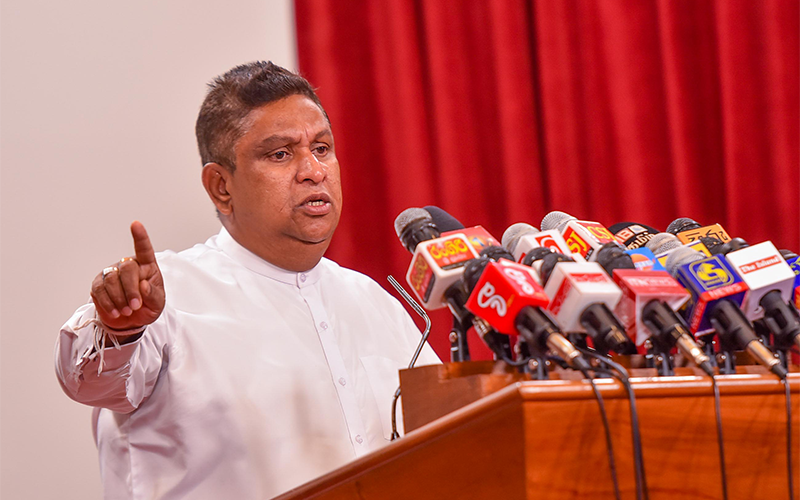



.jpg)
.jpg)
.jpg)
.jpg)
.jpg)
.jpg)

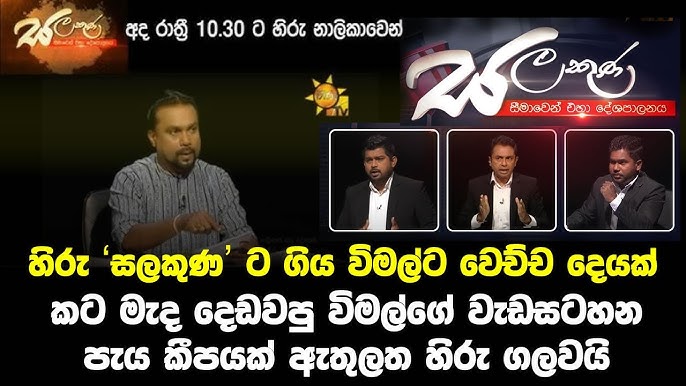

.jpg)
.jpg)

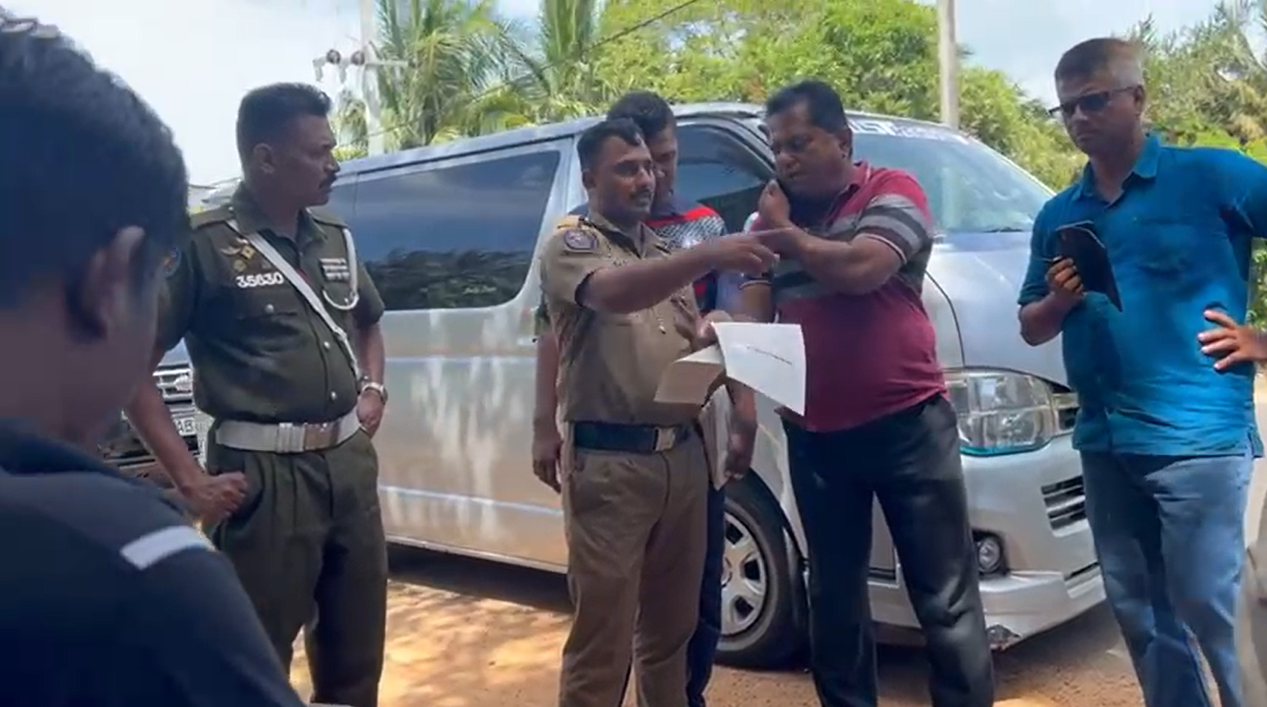
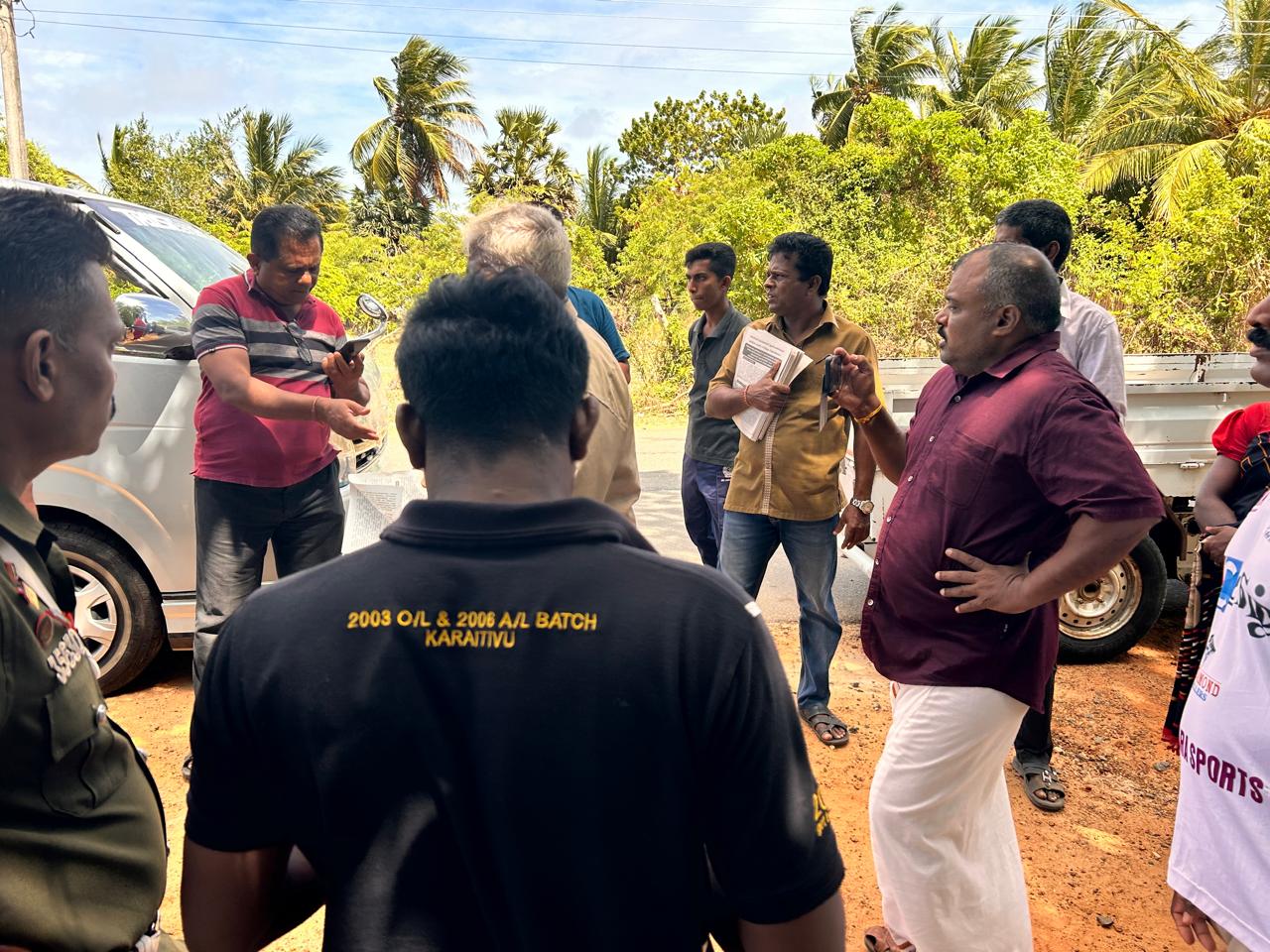


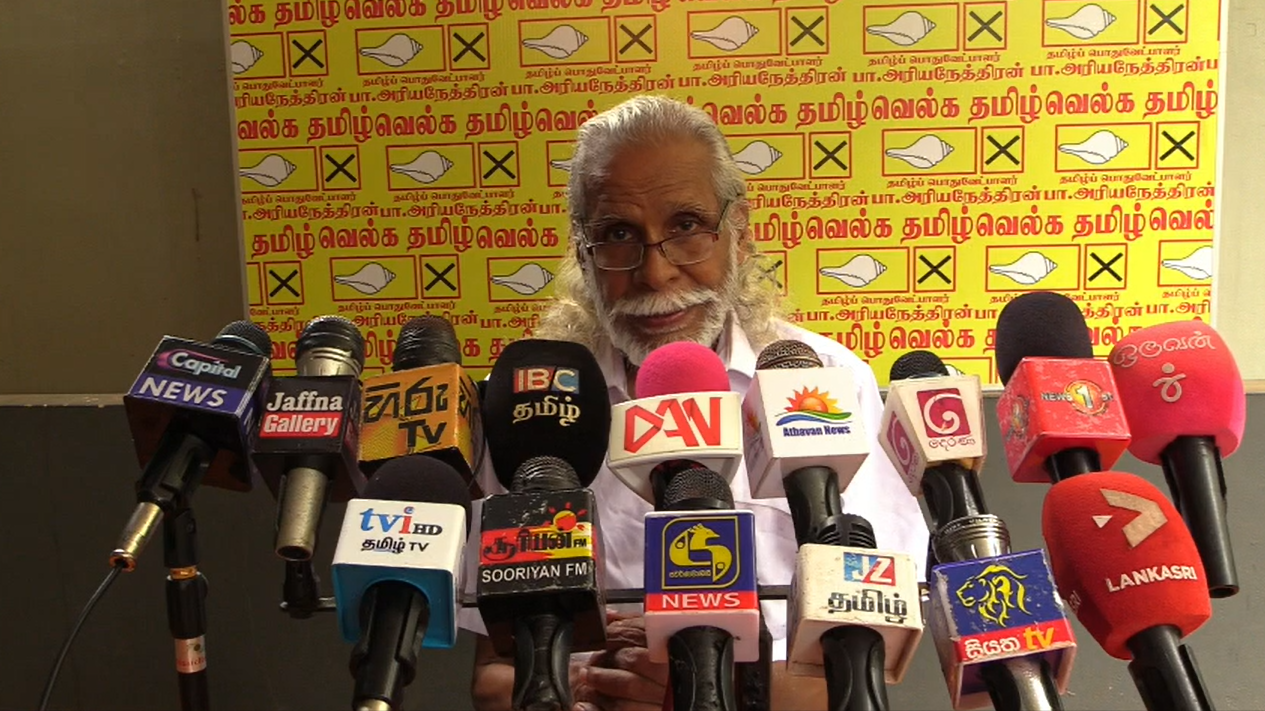

.jpeg)
.jpeg)
.jpg)
.jpeg)
.jpg)


.JPG)
